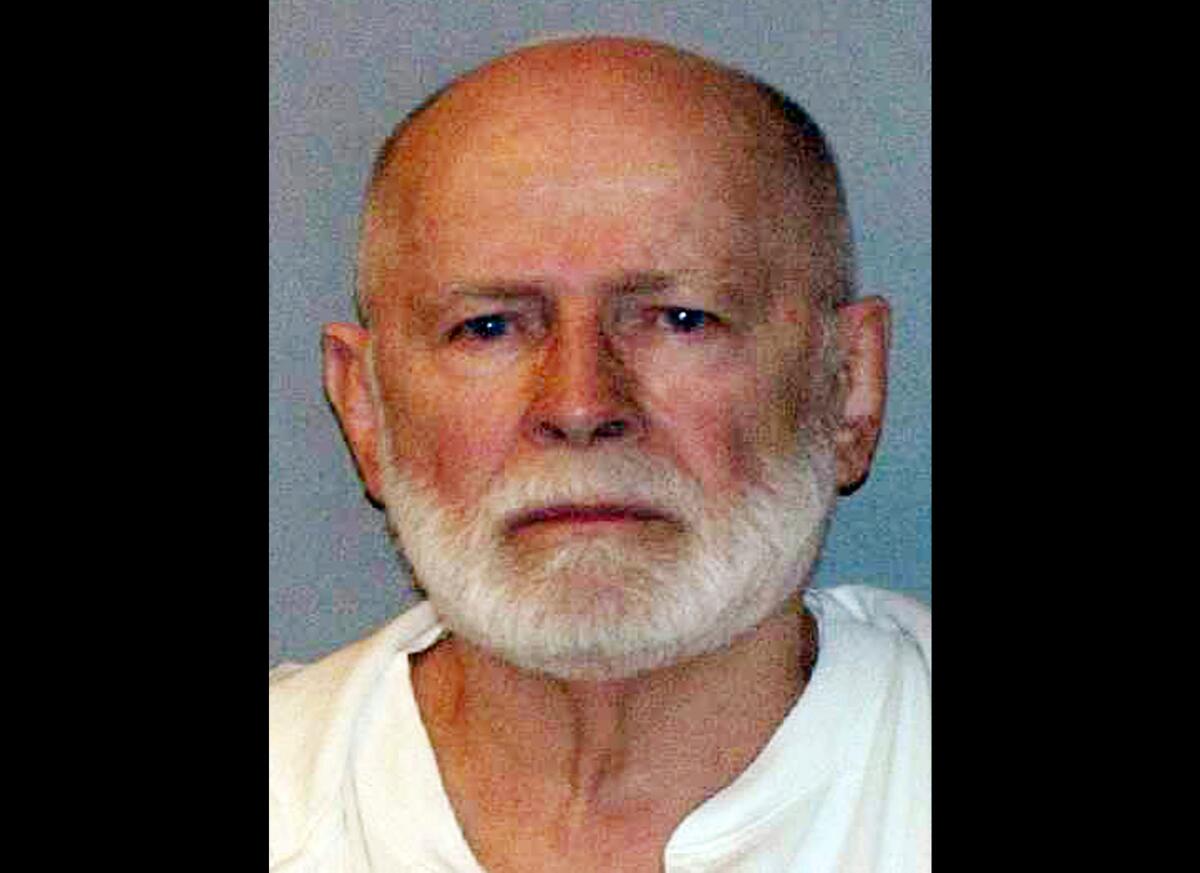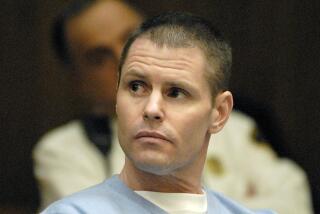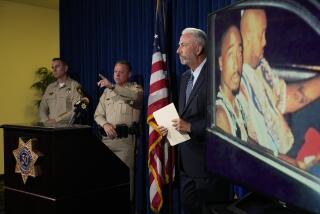Family members of Whitey Bulger’s alleged victims testify

BOSTON — It was Mother’s Day weekend 1982, and Michael Donahue stopped in at his wife’s salon for a haircut.
He said he was going to get some bait to take their 8-year-old son fishing. She never saw him alive again.
Donahue was gunned down that night as he and another man left a Boston restaurant.
Prosecutors say Donahue was killed by reputed gangster James “Whitey” Bulger because he was in the wrong place at the wrong time. He happened to offer a ride home to Edward “Brian” Halloran, a man Donahue had occasionally worked with as a Teamster. Prosecutors say Bulger targeted Halloran, a former associate, because he had become an informant.
As Patricia Donahue described that day from the witness stand Friday in Bulger’s racketeering trial, her three now-grown sons wept.
Donahue said she was cooking dinner that night when she heard a television report about a “gangland slaying.” She said she didn’t give it much thought until she glanced at the TV minutes later and saw her father-in-law’s car, which her husband had been driving.
“At that point, I was hyperventilating, I was confused, I didn’t know what was going on,” she said.
Around 10 p.m., police came to her door and took her to a hospital, where she saw her dead husband.
Bulger, seated just feet away from Donahue in the courtroom, appeared to glance at her only once as she testified.
The 83-year-old Bulger is charged with participating in 19 killings in the 1970s and ‘80s while he allegedly led the Winter Hill Gang. He was one of the nation’s most wanted fugitives from 1994 — when he fled Boston — to 2011, when he was finally captured in Santa Monica.
During cross-examination, Bulger’s lawyer, J.W. Carney Jr., asked Donahue about a lawsuit she and her sons had filed against the FBI and former FBI agents John Morris and John Connolly, saying that they shared responsibility for her husband’s death.
Morris testified that he told Connolly about Halloran becoming an informant. Prosecutors say Connolly then told Bulger, who decided to kill Halloran to keep him quiet. Connolly was later convicted for protecting Bulger from prosecution, while Morris received immunity in exchange for his cooperation against Connolly and Bulger.
Judge Denise Casper repeatedly sustained objections by prosecutors over Carney’s questions about the lawsuit, but Patricia Donahue did get one answer in.
“I don’t understand why all these people that were involved in my husband’s death are walking around like nothing ever happened. I don’t think it’s fair and I don’t understand why the government lets that happen,” she said.
Bulger denies being an informant, and his lawyers have spent much of the trial trying to knock down that claim and portraying the FBI as complicit in some of the killings.
The brother of another alleged Bulger victim also testified Friday. Steve Davis described learning about his sister’s disappearance in 1981 and the discovery of her body in a watery grave in Quincy 19 years later.
Debra Davis was the longtime girlfriend of Bulger’s partner, Stephen “The Rifleman” Flemmi. Davis said his sister first met Flemmi when she was 17 and dated the much-older Flemmi until she disappeared at age 26. He would give her jewelry and other expensive gifts, including cars, Davis said.
Flemmi has testified in other trials that Bulger strangled the woman. But Bulger’s lawyers say it was Flemmi who killed Debra Davis because she was leaving him for another man.
During cross-examination by Carney, Steve Davis acknowledged that Flemmi was possessive and did not like it when Debra Davis talked to other men. Davis testified that Flemmi continued to come to his mother’s house after his sister’s disappearance and said he was doing everything he could to try to find her.
“I didn’t believe it from the beginning,” he said.
In other testimony, a convicted drug dealer who refused to pay Bulger $100,000 to stay in business said he changed his mind after his 17-year-old brother was shot and Bulger told him, “You’re next.”
Anthony Attardo was one of several people who testified about their fear of Bulger and his reputation for violence.
Attardo’s brother survived and Bulger was never charged in the shooting. Attardo said he paid Bulger $80,000 and Bulger told him “don’t worry about the rest.”
ALSO:
Mystery man at Seattle campus faces federal weapons charges
DNA ‘familiar match’ ties DeSalvo to 1964 Boston Strangler case
Judge’s unique sentence: Woman told to write about being a lady
More to Read
Sign up for Essential California
The most important California stories and recommendations in your inbox every morning.
You may occasionally receive promotional content from the Los Angeles Times.










